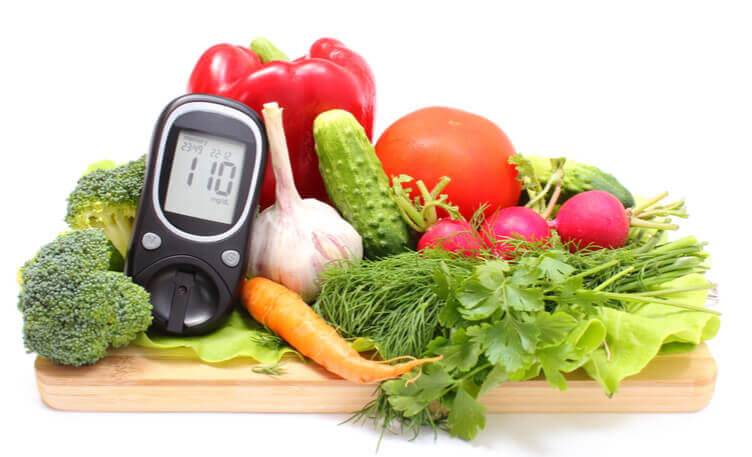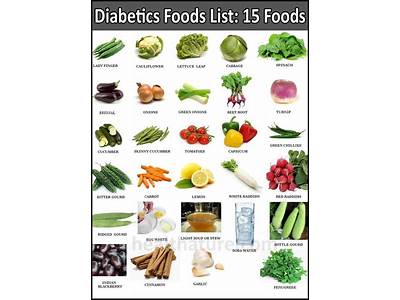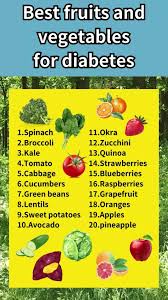Are Vegetables Overhyped in Diabetes Treatment?
- admin
- September 16, 2024
- 5:26 pm
- No Comments

Vegetables have long been hailed as essential for a balanced diet, especially for those managing chronic conditions like diabetes.
But are they truly as miraculous as they are made out to be in diabetes treatment, or are we overhyping their role?
While many vegetables provide essential nutrients, not all veggies are created equal when it comes to managing blood sugar levels.
In this article, I shall explore whether vegetables live up to their reputation in diabetes treatment and look at the evidence that supports (or refutes) their role in blood sugar control.
“Are Vegetables Overhyped in Diabetes Treatment” Article Index:
- The Role of Vegetables in Diabetes Treatment
- Best Vegetables for Diabetics
- Sweet Potatoes: Are They Really Good for Diabetes?
- Vegetables for Diabetics to Avoid
- Carrots for Diabetics: Friend or Foe?
- The Healthiest Vegetables for Diabetics
- Vegetables with Less Sugar: Are They the Answer?
- Conclusion: Are Vegetables Overhyped in Diabetes Treatment?
The Role of Vegetables in Diabetes Treatment
Vegetables are often touted as a key component of any diabetes-friendly diet.
They are packed with fiber, vitamins, and minerals (such as chromium for treating diabetes) that support overall health and help regulate blood sugar levels. However, the extent to which vegetables alone can control diabetes is still a topic of debate.
While they play an undeniable role, it is crucial to understand which veggies are beneficial and how they fit into an overall balanced eating plan.
Research published in The Journal of Nutrition emphasizes that non-starchy vegetables, in particular, are linked to improved insulin sensitivity and better blood sugar control.
However, managing diabetes goes beyond simply loading your plate with greens.

Best Vegetables for Diabetics
The best vegetables for diabetics are those low in carbohydrates and high in fiber.
Fiber slows down the digestion of carbohydrates, preventing blood sugar spikes.
Leafy greens like spinach, kale, and Swiss chard are often ranked at the top of the list of veggies good for diabetics. These greens have minimal impact on blood sugar while providing a plethora of nutrients.
According to the American Diabetes Association (ADA), non-starchy vegetables are ideal for blood sugar management.
Sweet Potatoes: Are They Really Good for Diabetes?
The debate around sweet potatoes and diabetes management is ongoing.
While they’re considered one of the best vegetables for diabetics by some, due to their fiber content and low glycemic index, they do contain more carbs than other non-starchy vegetables.
So, are sweet potatoes good for diabetes?
A study published in The Journal of Nutrition and Metabolism found that sweet potatoes could help regulate blood sugar levels when consumed in moderation.
Their fiber content slows digestion, making them a better alternative to regular potatoes.
So, why not opt for avocado toasts for controlling insulin spikes instead!!!
Still, it is important for diabetics to keep portion sizes in check.
Vegetables for Diabetics to Avoid
Not all vegetables are created equal when it comes to blood sugar management. While vegetables are generally considered healthy, some varieties can cause significant glucose spikes if not consumed mindfully—especially for individuals with diabetes.
Here is what you need to know:
@ Starchy vegetables pack more carbohydrates:
Potatoes, corn, peas, and winter squash are rich in digestible carbs that convert quickly into glucose. These can lead to rapid blood sugar spikes if eaten in large amounts.
@ Nutrient density doesn’t equal blood sugar safety:
While starchy vegetables provide essential vitamins, minerals, and antioxidants, their glycemic impact must be respected. It’s all about balance.
@ Resistant starch helps slow down glucose release:
Cooked and cooled potatoes or sweet potatoes develop resistant starch—a form of carbohydrate that resists digestion and leads to more stable post-meal blood sugar levels.
@ Choose non-starchy vegetables as your base:
Leafy greens, broccoli, cauliflower, bell peppers, cucumbers, zucchini, and asparagus are low in net carbs and fiber-rich, making them excellent for blood sugar control.
@ Glycemic load matters more than glycemic index alone:
Glycemic index ranks how fast a food raises blood sugar, while glycemic load also considers portion size. A lower glycemic load is easier on the pancreas.
@ Your response may differ from someone else’s:
Recent studies show individual variations in blood glucose response to the same food due to differences in gut microbiota, body type, and activity levels.
@ Pair and portion wisely:
Fill half your plate with non-starchy vegetables, limit starchy options to a quarter, and pair them with proteins or healthy fats to minimize glucose fluctuations.
In short, starchy vegetables are not forbidden—but they should be enjoyed in moderation, smartly prepared, and always balanced with low-carb, fiber-rich counterparts.
Carrots for Diabetics: Friend or Foe?
Carrots are another veggie that often gets a bad rap for their sugar content.
So, are carrots for diabetics a smart choice?
Despite their slightly higher glycemic index, carrots are packed with beta-carotene and fiber, making them a healthy vegetable option for most people with diabetes.
According to a study published in the Journal of Nutritional Biochemistry, the antioxidants in carrots may even offer protection against diabetes-related complications.
As long as they’re consumed in moderation, carrots can certainly be part of a diabetic-friendly diet.
The Healthiest Vegetables for Diabetics
What are the healthiest vegetables for diabetics?
Aside from leafy greens, cruciferous vegetables like broccoli, cauliflower, and Brussels sprouts are top contenders. These vegetables are high in fiber and low in sugar, helping to stabilize blood sugar levels.
Broccoli, in particular, has been shown to reduce blood sugar levels in people with type 2 diabetes, according to a study published in Science Translational Medicine.
Vegetables with Less Sugar: Are They the Answer?
Vegetables with less sugar may seem like the answer for those looking to manage diabetes, but it is more about the type of carbohydrates and fiber content than simply avoiding sugars.
Vegetables like asparagus, zucchini, and cucumbers are low in sugar and have a minimal impact on blood sugar levels.
They are excellent choices for diabetics looking to keep their sugar intake low.

Final Analysis: Are Vegetables Overhyped in Diabetes Treatment?
So, are vegetables overhyped in diabetes treatment?
While they are essential for a healthy diet and play a significant role in managing diabetes, vegetables alone are not a magic bullet.
The type of vegetable, portion sizes, and overall dietary balance are crucial factors in managing blood sugar effectively.
Vegetables like leafy greens, broccoli, and even sweet potatoes in moderation can be excellent choices for diabetics.
However, high-carb, starchy vegetables like potatoes and corn should be limited.
The key takeaway is that vegetables should certainly be part of the best dietary supplement for diabetics, but they are just one piece of the puzzle in controlling the disease.
References: